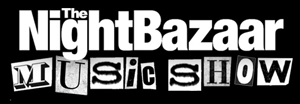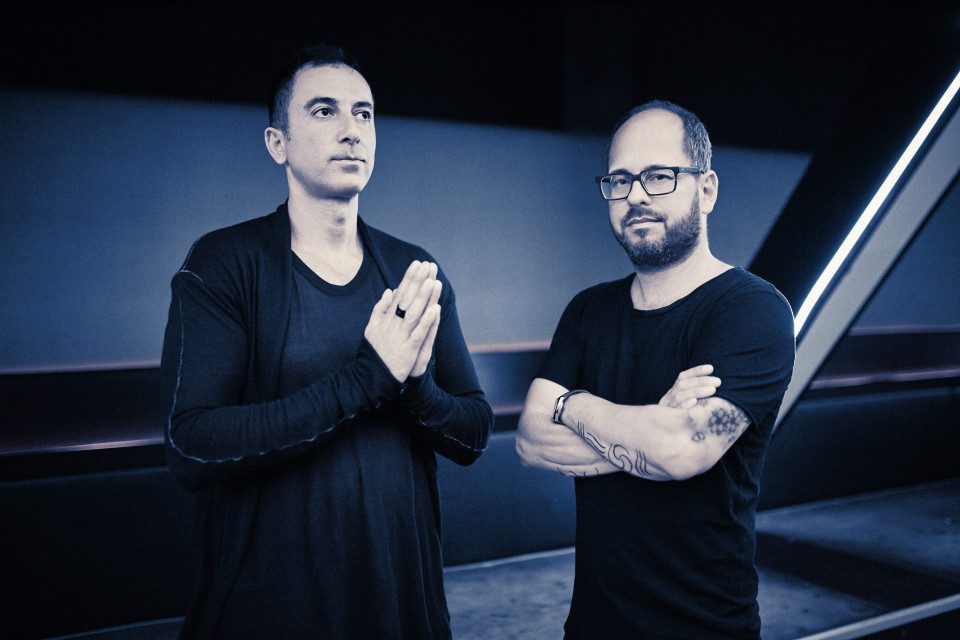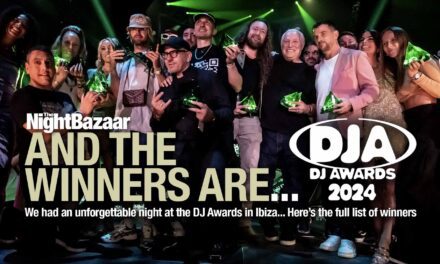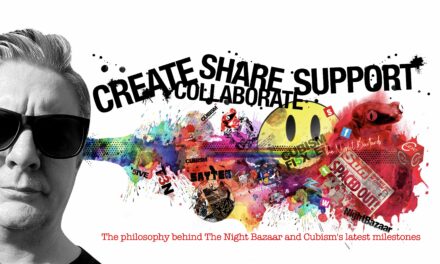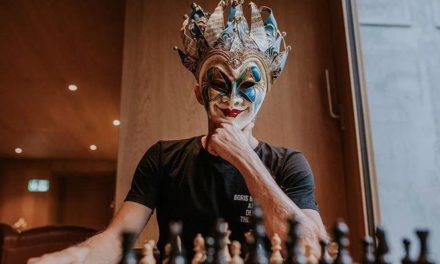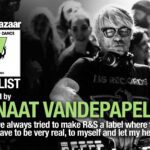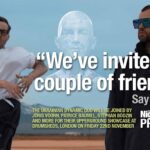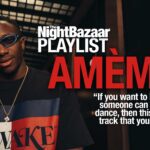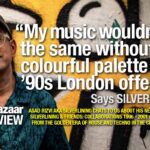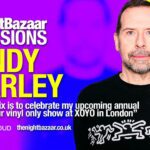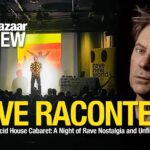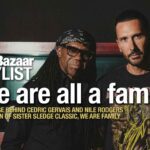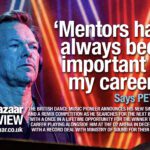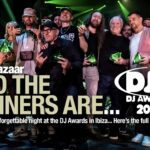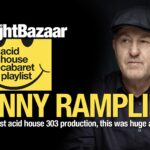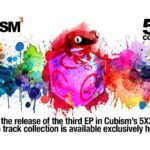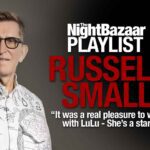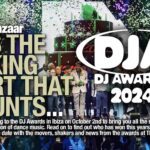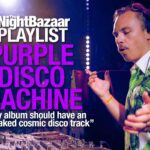TWO of Techno’s most influential statesmen, Dubfire and Oliver Huntemann, have recently come together to deliver a comprehensive collaborative anthology called ‘Retrospectivo’ via Senso Sounds.
Clubz are extremely pleased have the two legends take some time out of their busy touring schedules and provide a very special and exclusive ‘Back-2-Back’ style interview where they both interview each other.
OLIVER HUNTEMANN ASKS DUBFIRE 5 QUESTIONS
What is the story behind your artist name?
I get asked this question a lot actually and many are surprised by the answer. In short, “Dub Fire” is the name of a song by Lee “Scratch” Perry (as well as Aswad) which I love; in fact I’ve always been a massive reggae and dub fan but it wasn’t until I was studying the credits of Soul II Soul’s debut album that I considered it as my DJ / artist name. You see there was an engineer or some sort of studio collaborator name Mark “Dubfire” in the credits and the name just jumped out at me and I realized that it probably represented my musical ideals at the time best. And lastly that there were just too many Middle Eastern or latin DJs in the Washington DC-area who’d use their given names; annoyingly they’d use only their first name. And I didn’t want to be lumped in with them because I wanted to forge my own distinct musical path.
You are deeply attached to the Japanese culture. Especially the food and Sake traditions seem very important to you. Do you see similarities of an artist who does music or other arts and the very traditional way of creating Sake or being a Japanese chef?
I wouldn’t say that there are direct influences between Japanese gastronomy or sake to what I do; it has more to do with the dedication, practice, discipline, patience, hard work and creativity that I admire in their culture. Take for instance Kaiseki cuisine which began as something that supported the tea ceremony in Kyoto and is now a culinary art which chefs from around the world find endlessly fascinating, taking a high degree of skill to execute. Using only seasonal ingredients and carefully presenting each course in a specific order is akin to the way I perform. Sake has also become something more then just to get me in the right mood for a performance; I’ve actually taken time to study it as a hobby and passion in hopes of understanding why I’m so attached to it’s qualities and history.
Countless electronic music artists moved to Berlin within the past years. Why did you stick with Washington and added Barcelona for the summer season as your places to live?
To be honest I did think long and hard about Berlin as my summer home but just couldn’t handle the weather. Barcelona simply had the perfect balance of what I was searching for: perfect weather nearly year-round, incredible gastronomy, the fact that you can pretty much get anywhere you need to on a bicycle as well as its’ airport which is a perfect European hub to literally anywhere you need to go around the world. The people are also very warm and open and I have quite a large group of friends and colleagues there now. It definitely feels like home for me.
2016 you’ve set the focus on your HYBRID show. Why HYBRID and how does it feel to play more or less hidden comparing to DJ sets where you usually have eye contact with the audience?
I’m not a big fan of DJ worship and a bit uncomfortable in the spotlight; I think in this day and age too much emphasis is placed on the DJ as the central, focal point on stage. Especially with the commercial “EDM” DJs; all they’re really doing is playing other people’s music in a specific order and jumping around like monkeys. Serious full production live performance is another animal entirely and while the HYBRID show represents my musical journey over the past decade, that is simply the soundtrack to this futuristic world we’ve created with the visuals. And just like there is a story behind each song or remix I’ve done, I really wanted to create a parallel storyline with the visuals Volvox Labs and I created. Putting me behind the two screens puts me directly INSIDE that environment. If I was out in front, I would merely be a distraction. And it’s not just for the audience’s benefit; I too feel as though I’m performing from within this optical world since I can clearly see the projected images in front of me on both screens.
Pre-Party or After-Party?
Haha I always choose the after party since I’m usually sleeping, working out, prepping or eating before the main event!
DUBFIRE ASKS OLIVER HUNTEMANN 5 QUESTIONS
Which artists or groups were a defining influence during your teenage years?
I’m a true child of the 80s and got deep into electronic music through my passion for Break dancing. I have a kind of a talisman, a record that was always in my record box, it still is and it always will be: Planet Rock by Afrika Bambaataa & The Soulsonic Force, produced by Arthur Baker. Arthur Baker was one of my biggest influences back then. Also Newcleus, The Egyptian Lover, Man Parrish and Cybotron formed me much.
You toured many years ago in support of your artist album by playing on a Reactable. How was that experience and would you do it again?
Touring with the Reactable was a great experience. I fell in love with the system because it’s very intuitive to use. Creating an arrangement while combining loops, effects and filters with cubes on a big flashy touchscreen is very special. I wished I’d have at least four more hands. I love challenges and my Reactable was kind of a prototype. Needless to say it was not easy to get many issues under control – but that’s the way if you want to make something special, isn’t it? I’d always do something like this again as long as it is as unique like the Reactable and makes me that curious to work with.
Have you ever fallen prey to the charms of the Reeperbahn?
If you ever saw the Reeperbahn during daytime there is not much left of the nightime redlight romantic. It’s mainly just a dirty, shady neighbourhood to rip off tourists – but with some interesting hidden places. Of course I have my experiences in spending all night in little bars and clubs around Reeperbahn, drinking too much Schnaps (german shots) and remembering less (or nothing) the next day. The good thing is, the rules are simple: What happens on Reeperbahn stays on Reeperbahn…
As someone who travels consistently around the world – spending most of your time away from home – what keeps you sane?
Exactly this life keeps me sane. After all these years I still love to travel, to meet people and to have exotic experiences. It keeps me young and curious. On the other side it’s important for me to have a home, where I immediately feel comfortable after a long journey. My family and my friends playing a big role in my life, although I don’t see them as much as I wish. There are also big changes and challenges coming up in my private life next year and I’m very excited about it.
What is the best current restaurant in Hamburg?
As Hamburg has a long tradition with its 827 years old harbour and the fishmarket (tip: Sunday morning straight from the club to the fishmarket at 6am), I go for the Fischereihafenrestaurant at the Elbe river. Although it seems that most of the guests are beyond seventy (they really have one of these senior stair-lifts you might recognize from pharmacy magazine advertisings) and the interior looks like fresh from the 70s, Fischereihafenrestaurant still has the best basic fish dishes in town. A truly unique Hamburg experience.
Dubfire and Oliver Huntemann – Retrospectivo is out now. Grab a copy here.


